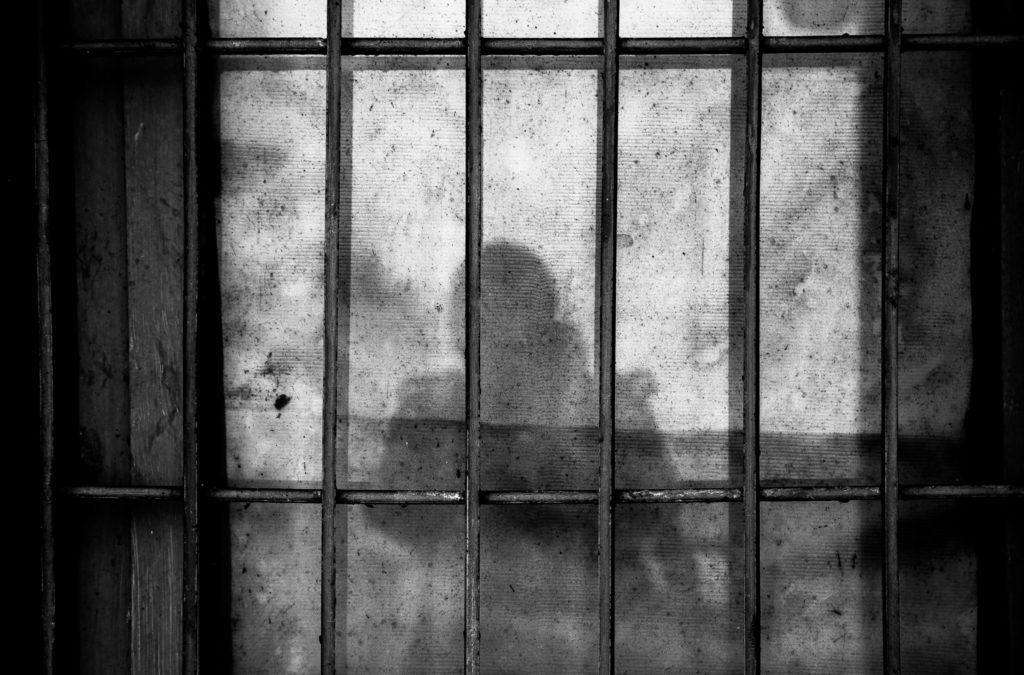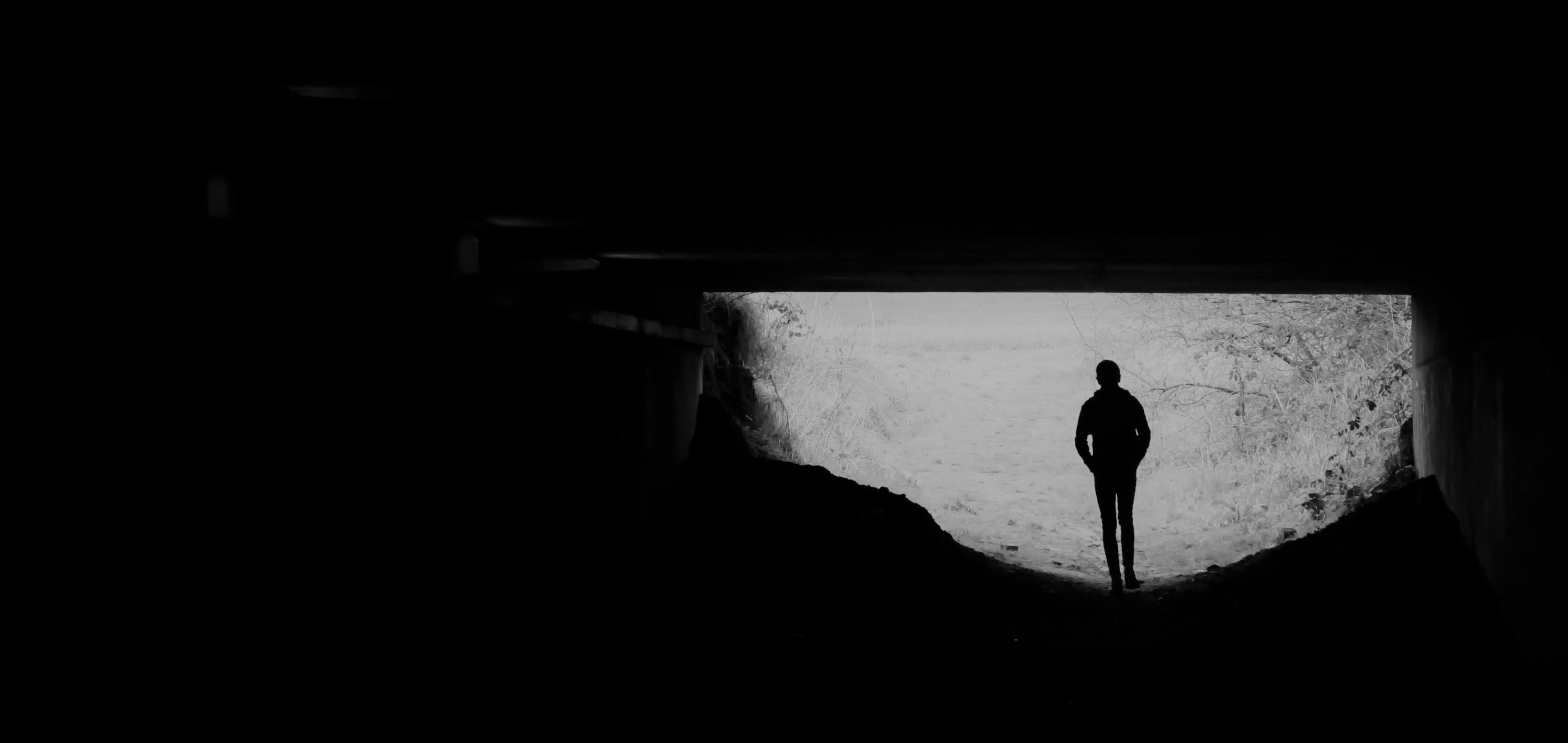“Up ahead they’s a thousand lives we might live,
but when it comes, it’ll on’y be one.”
The Grapes of Wrath
Fourteen years ago, a couple Southeast Texas high school kids just wanted to score some weed.
They were an odd couple. Garrett was a hardened gangbanger with a long juvie rap sheet and a bad reputation. Jamie was a whitebread junior who was thrilled to get a “C” on his papers, ordinary enough to be overlooked. He just wanted to be somebody and was willing to hang with the bad boys for whatever street cred it might give him.
This night, Jamie drove and Garrett rode shotgun into the down side of town, where Garrett knew a guy. But the dealer was a crazy freak, he said. You can’t know what he’ll do. Just to be safe, Garrett stuck his .357 in the crack between their seats and pointed the way.
When they arrived at a rundown house, Jamie rolled down his window as the dealer approached. Money and pot were exchanged, then Garrett flipped out about being shorted. Tempers flared. It got out of hand quick. Jamie didn’t know what was happening, but it was bad.
“Shoot him!” Garrett yelled. “Shoot him!”
Freaking out, Jamie snatched the gun beside him and fired. The dealer fell back, shot in the chest. He was dead.

Jamie and Garrett were busted, tried and convicted. They both went to a Texas prison. They were kids who’d committed an adult crime, and they were exactly where they should be. They were both guilty as hell, especially the shooter, Jamie.
He was 17 years old and staring at 25 years of hard time ahead.
Ω Ω Ω
That’s not the story I wanted to tell, although it’s something you need to know. Now that you know it, I want to tell you this:
Jamie was one of my wife Mary’s students. He was a good kid, maybe a little on the shy-goofy side. But he gave her no trouble in class, and was modestly committed to his work. He tried to be better than he was, which wasn’t the case for every student. Mary saw something in him that wasn’t obvious to anybody else’s naked eye.
Then he murdered somebody.
Mary wasn’t blinded by her own reckoning of Jamie. She was clear-eyed and horrified. The facts of the case were clear. She couldn’t deny them even if she wanted to. In a turbulent, chaotic moment, when his fear grabbed him by the throat and there was screaming and world rushed past him … Jamie shot somebody dead. He was a killer.
But Mary knew Jamie. She believed his life wasn’t over. She said so as a character witness at his trial. Yes, he should do his time, but then what? There’d be a moment when he returned to The World. Nothing that came before would be enough to save him from everything that comes after. He’d be a man in full, handicapped by his grievous past. He’d be worth nothing to anyone, least of all himself. An ex-con. A worthless maggot.
Ω Ω Ω
So here’s the story I wanted to tell in the first place: Mary started writing to Jamie in prison shortly after he went in. She wanted him to know that somebody had higher expectations of him than he had for himself. She wanted to offer guidance about staying clean and living a straight life. And ever the teacher, she wanted him to learn everything he could so that he could come back into The World better than when he left it.

There was darkness in his first replies to her. He was hollowed out.
Still, she responded like a teacher, with encouragement, honesty, and purpose. She sent him books that she thought he should read—like “The Grapes of Wrath,” “Lonesome Dove,” “Empire Falls” and dozens more. At first, Jamie delivered shallow book reports, like a teenage boy might write in a really boring English class. Mary would respond about the deeper meanings, trying to help Jamie see why and how literature might be life its ownself.
Then Jamie’s letters slowly became more thoughtful. The books started speaking to him. They pointed the way.
Soon, he signed up for a community college class in HVAC repair. Then another, and another, until he had a certified trade that might—might—give him a place to stand when the day came. In time, he earned three associate’s degrees while imprisoned.
Most importantly, he stayed out of trouble behind bars.
Mary kept writing. She encouraged his education and explorations. She sent more books. She suggested ways to take his mind off the walls. She told him stories about her life, always with some hidden meaning about what it meant to be a good man in his next life. She told him he was worth her time.
After many years, Jamie’s letters weren’t so dark. He wasn’t as hollow. As he entered his late 20s, he saw a future he couldn’t see before. He was never real sentimental—a protective device for prisoners—but he had come to believe in himself because Mary believed in him.
He came up for parole this year, almost 13 years after he was sentenced. It was denied. But he was philosophical about it, almost as if he’d learned about patience from Atticus Finch or life’s purpose from Tom Joad. He knew what he did and “this is one of the things that I can never change.”
But there’s always next year, he said.
Ω Ω Ω
Jamie’s most recent letter arrived just a few days ago.
“Did I thank you for the book, ‘The Circle’?” he wrote, pushing down the urge to be sappy. “I am grateful. Thank you. You’re awesome. … [In the book] you have people watching and you don’t want to be a bad example but who’s wrong or right? If everybody played by the rules, it would all run smoothly.”

He knows. He just knows.
Still in prison, Jamie has enrolled in genuine bachelor’s-degree classes offered to inmates by the University of Houston. In every letter, he writes at length about Mary’s books, her kindness, and her encouragement. He wants to believe he has a place on the outside, although it scares him just a little to not know what it might be.
Mary doesn’t know either, but she couldn’t let him be lost. Nothing can change what he did. They both know that. But this kid—a good kid, maybe a little on the shy-goofy side, who gave her no trouble in class, was modestly committed to his work, and who tried to be better than he was—is now better than he was. The rest is up to him.
And Mary saw something in him that wasn’t obvious to anybody else’s naked eye.
May we all cross paths with a teacher who sees our possibilities and will go an extra few steps to help us make our lives matter.
That’s what makes a teacher’s life matter, too.
“Every man’s life ends the same way.
It is only the details of how he lived and how he died
that distinguish one man from another.”
Ernest Hemingway
(Credits: Cover photo by Elliott Matthews; quotations from “Grapes of Wrath” by John Steinbeck, and Ernest Hemingway)
